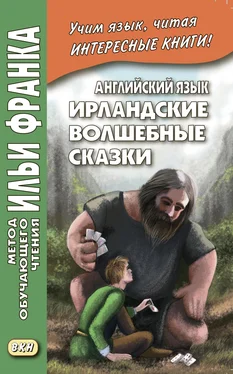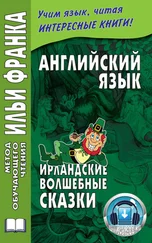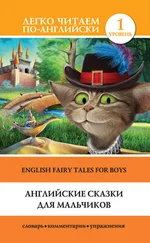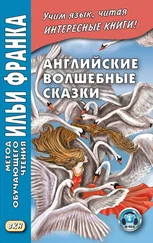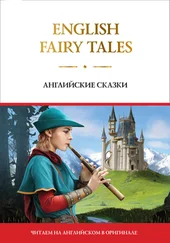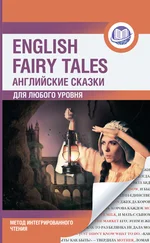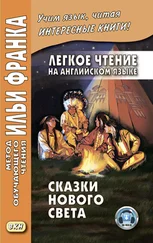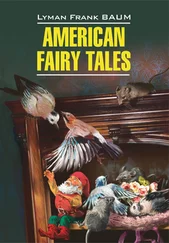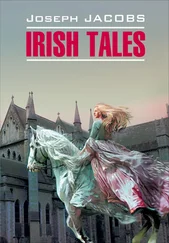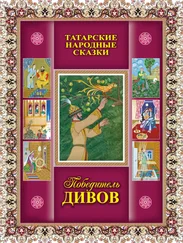“Oh! then you are welcome to my house, king’s son of Erin,” said she. “You were with my sister last night; you are with me tonight; and it’s glad I am to see you.”
She gave him meat and drink and a good bed to lie on.
When he rose next morning(когда он встал следующим утром; to rise – подниматься, вставать на ноги ) breakfast was there before him(завтрак был уже на столе: «был там перед ним»; breakfast ['brekfəst] ; there [ðeə] – там ) , and when he had eaten(а когда он поел; to eat – есть, кушать; eaten ['i:t(ə)n]) and was ready for the journey(и был готов для путешествия; ready ['redɪ] ; journey ['ʤɜ:nɪ]) , the old woman gave him a ball of thread, saying(старуха дала ему клубок ниток, говоря = сказав /при этом/) , “You were with my younger sister the night before last(ты был с моей младшей сестрой позапрошлой ночью: «ночью перед прошлой /ночью/»; young [jʌŋ] – молодой, юный; младший, молодой /о членах одной семьи/ ) ; you were with me last night(и ты был со мной прошлой ночью) ; and you’ll be with my elder sister tonight(и ты будешь с моей старшей сестрой сегодня ночью; elder ['eldə] – старший /по возрасту или положению/ ) . You must do what she tells you(ты должен сделать то, что она велит тебе; to tell – рассказывать; велеть, приказывать ) , or you’ll lose your head(или = иначе ты потеряешь свою голову; to lose [lu:z]) . You must throw this ball before you(ты должен бросить этот клубок перед собой) , and follow the clew till evening(и следовать за клубком ниток до вечера; clew [klu:] – клубок /ниток/, моток /пряжи/ ) .”
When he rose next morning breakfast was there before him, and when he had eaten and was ready for the journey, the old woman gave him a ball of thread, saying, “You were with my younger sister the night before last; you were with me last night; and you’ll be with my elder sister tonight. You must do what she tells you, or you’ll lose your head. You must throw this ball before you, and follow the clew till evening.”
He threw down the ball(он бросил клубок оземь: «он бросил вниз клубок»; to throw – бросать ) : it rolled on(тот покатился вперед; to roll on – катиться вперед, дальше, продолжать катиться ) , showing the way(показывая дорогу; to show [ʃəʋ]) up and down mountains and hills(вверх и вниз /по/ горам и холмам; mountain ['maʋntɪn]) , across valleys and braes(через долины и крутые берега рек; brae [breɪ] /шотл./ – крутой берег реки; склон холма ) . All day he wound the ball unceasingly(весь день он беспрестанно мотал клубок; to wind [waɪnd] – виться, извиваться; наматывать, мотать; wound [waʋnd] – мотал; to cease [si:s] – прекращать, переставать, останавливаться; unceasing [ʌn'si:sɪŋ] – непрерывный, беспрестанный ) it went till nightfall(он шел = клубок катился до наступления ночи; night – ночь, вечер; fall – падение; nightfall ['naɪtfɔ:l] – наступление вечера, ночи; сумерки ) , when he came to a light(когда он пришел к огоньку) , found a little house(обнаружил маленький домик) , and went in(и вошел внутрь) . Inside was an old woman(внутри была старуха) , the eldest sister(/самая/ старшая сестра) , who said(которая сказала) , “You are welcome, and glad am I to see you, king’s son(добро пожаловать, и /как же/ рада я видеть тебя, королевский сын) .”
He threw down the ball: it rolled on, showing the way up and down mountains and hills, across valleys and braes. All day he wound the ball; unceasingly it went till nightfall, when he came to a light, found a little house, and went in. Inside was an old woman, the eldest sister, who said, “You are welcome, and glad am I to see you, king’s son.”
She treated him as well(она приняла и угостила его столь же хорошо; to treat [tri:t] smb. – обращаться, обходиться, вести себя по отношению к кому-либо как-либо; принимать /гостей/, развлекать, угощать ) as the other two had done(как две другие /сестры/ сделали это /раньше/; to do; done [dʌn]) . After he had eaten breakfast next morning(после того, как он съел завтрак следующим утром; to eat ) , she said(она сказала) , “I know well(я хорошо знаю) the journey you are on(/про/ то путешествие, в котором ты сейчас = зачем ты путешествуешь; to be on a journey – быть в путешествии ) . You have lost your head to the Giant of Loch Léin(ты проиграл свою голову великану озера Лох Лейн; to lose – терять; проигрывать ) , and you are going to give yourself up(и теперь ты собираешься сдаться: «отдать себя /ему/»; to give oneself up – сдаться и сделаться пленником ).
She treated him as well as the other two had done. After he had eaten breakfast next morning, she said, “I know well the journey you are on. You have lost your head to the Giant of Loch Léin, and you are going to give yourself up.
This giant has a great castle(этот великан имеет = у этого великана огромный замок) . Around the castle are seven hundred iron spikes(вокруг замка расположены семьсот железных колышков; around [ə'raʋnd] – вокруг, кругом; hundred ['hʌndrəd], [-rɪd] ; iron ['aɪən] – железо; железный; spike – острый выступ, острие; шип; штырь ) , and on every spike of them but one(и на каждом колышке: «из них», кроме одного) is the head of a king(голова короля) , a queen(королевы) , or a king’s son(или королевского сына) . The seven hundredth spike is empty(семисотый колышек пустой = свободный; empty ['emptɪ]) , and nothing can save your head from that spike(и ничто не может спасти твою голову от того колышка) if you don’t take my advice(если не примешь: «возьмешь» моего совета = если не последуешь моему совету).
Читать дальше
